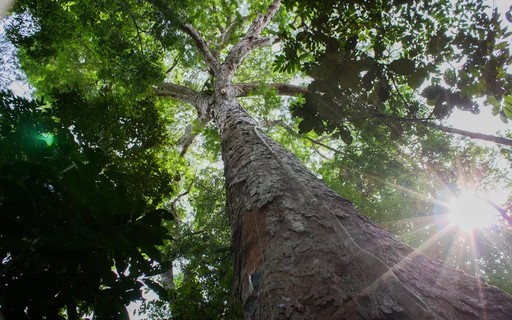
(Photo: iStock)
World Environment Day, celebrated on June 5, makes this month a time to reflect on the many challenges facing the planet, such as preserving forests, combating deforestation, urban pollution and all climate-related changes.
It is undeniable what experts and researchers have long warned – humanity is living in an era of climate crisis. Society already defines the responsibility of governments, in all its spheres, and of citizens, and that the private sector must contribute in addressing changes in climate and the environment and their consequences.
Companies, in turn, recognize that business sustainability, in the medium and long term, must be based on a vision for the future that takes into account social and environmental externalities, both negative and positive. Dow, a leading global chemical company, believes in the power of impact and the role companies play in driving social and economic change toward a more inclusive and environmentally responsible society. But this transformation can be accelerated and more effective when undertaken through partnerships, as suggested by Sustainable Development Goal (SDG) 17 of the United Nations 2030 Agenda: “Strengthen the means of implementation and revitalize the global partnership for sustainable development”.
Partnerships to achieve the necessary transformation
With this vision, allied to the ongoing practice of imagining beyond innovation and finding solutions to society’s most important underlying challenges, Dow has invested in significant projects with a socio-environmental impact with its partners. a libaba project – Conservação que Transforma is one of them and is associated with the conservation of the environment and the promotion of sustainable extraction of non-timber timber and the socio-economic development of the Breu Branco (PA) region where the Dow maintains an area of preserved Amazon forest and has an industrial complex.
An association formed mostly by women from a local community responsible for the extraction of biomaterials, and through a study of the area, the initiative identified 17 species of plants with the potential to be commercialized, retaining 100% of the income generated from this activity. The project, implemented in partnership with the Peabiru Institute, The Nature Conservancy and cosmetics company Natura, will also invest in training to boost the local bioeconomy production chain.
Ana Carolina Felix, Director of Sustainability at Dow Consumer Solutions Business for the Americas and one of the project leaders, believes that Ybá – Conservação que Transforma will enable communities to trade non-timber forest products through, above all, an activity that contributes to the environmental agenda. “The Ybá project has the potential to drive social transformation through collaborative partnerships focused on sustainable development. It represents the path where science, innovation and inclusion can provide social impact, helping these families become empowered — and standardize the practices and knowledge they have around the forest, with new organizing and management tools so they can walk new paths,” says Felix.
Away from the woods, there is also a lot to do. At the city level, Dow has supported initiatives to properly dispose of waste using Project reuseIn partnership with the Akato Institute, launched in 2021, to encourage the reuse of materials, within the logic of the circular economy. Initially, the project encouraged the correct disposal of mattresses and sofas with the aim of reusing them and avoiding incorrect disposal in landfills or incineration. The initiative supported selective collection, as well as raising awareness and mobilizing residents to promote the recycling of polyurethane foam (PU) waste in the city of Hortolandia, in São Paulo.
The initiative continues into 2022, providing the opportunity to create a material reuse paradigm for the refrigerator industry, uniting partners, customers and society at large to enable not only polyurethane foams – but also other components of refrigerators and freezers – to properly extract from old and recycled appliances. The Reúse project has now expanded to the Jundiaí (SP) region, in the cities of Itu, Itupeva, Cabreúva, Salto and Valinhos.
Technology to enhance sustainability
There are also sustainable solutions in the custom technologies Dow develops to serve its customers, enhancing creativity and imagination beyond the company and its partners. These technologies eventually revolutionize the entire production chain. In Colombia, one of the world’s five largest coffee exporters, Dow for Café Pergamino, in partnership with packaging company Alico, has developed a new packaging structure that preserves the organoleptic properties (flavour and aroma) of coffee and is more sustainable because it is recyclable and does not contain aluminium.
In the logic of the circular economy of plastics, Dow and startup Boomera LAR developed and produced PCR, a post-consumer recycled polyurethane resin that can be combined into different types of packaging and with the same performance as that produced from virgin resin. Another technology with environmentally sustainable attributes is ECOFAST™ Pure, a pre-treated cotton that allows textile products to require 50% less water in the dyeing process. This is because it reduces the number of rinses and the time of the wash cycle, without compromising the color of the fabric.
A more sustainable future requires science, innovation and collaboration
He says “Sustainability is our business strategy” Matias Campodonico, Director of Communications, Corporate Relations and Sustainability for Latin America at Dow. In this sense, since 2020, the company has three main sustainability goals: climate protection (reach carbon neutrality by 2050); Waste disposal (collect, reuse or recycle 1 million metric tons of plastic by 2030); and closing the loop (selling 100% reusable or recyclable products for packaging applications by 2035).
“We will only be able to achieve our goals by building this journey with other actors. The demands are complex and can only be addressed in partnership with other companies, our value chain representatives, universities and governments.” In line with achieving these goals, Dow aims to become the world’s most innovative, customer-focused, inclusive and sustainable materials science company. For 125 years, the company has been at the forefront of innovation and sustainability, striving for continuous improvement and responding to the needs of the society of its time.

“Wannabe internet buff. Future teen idol. Hardcore zombie guru. Gamer. Avid creator. Entrepreneur. Bacon ninja.”

